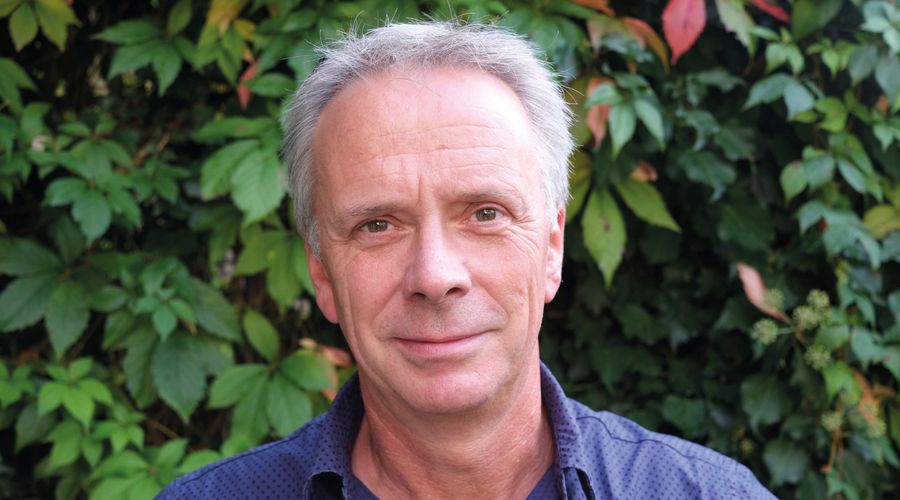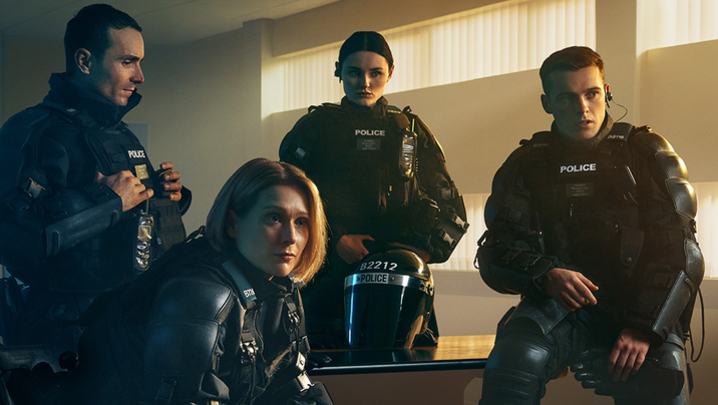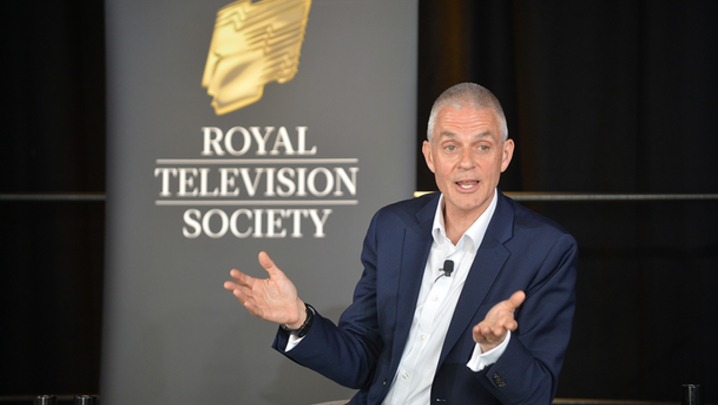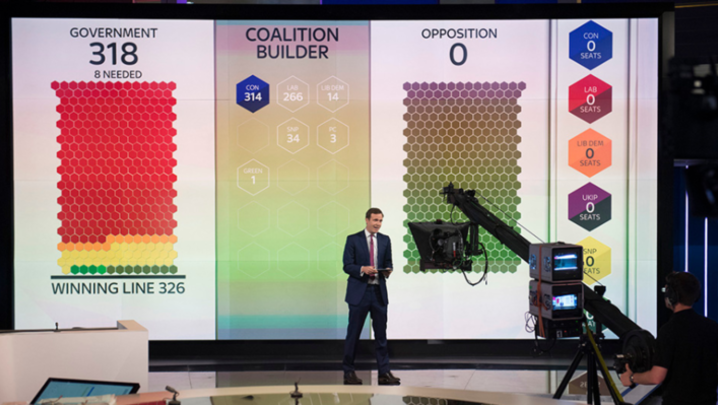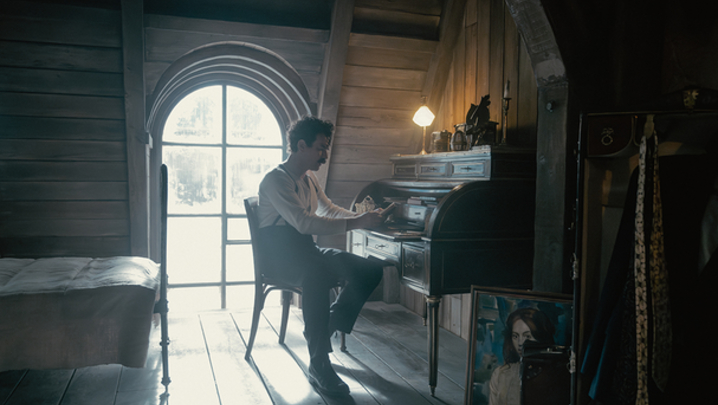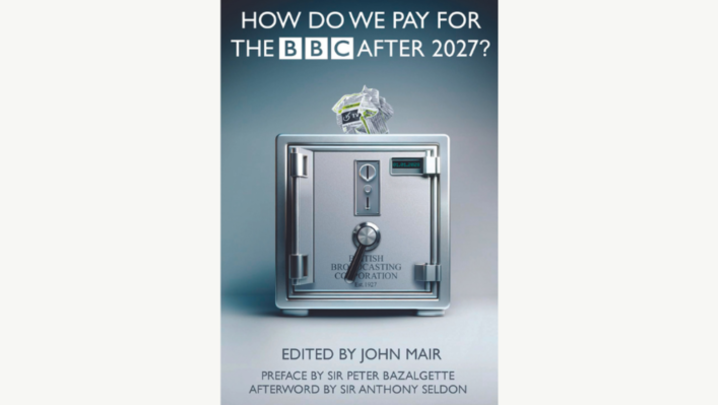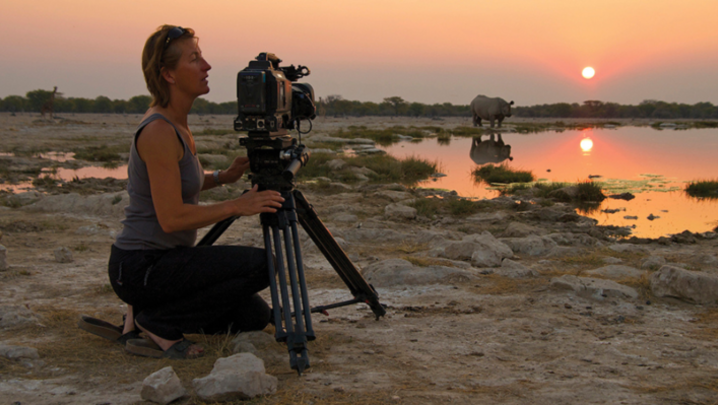Former ITV and BBC chief Peter Fincham has returned to his indie roots with Expectation. Andrew Billen checks the slate
Ah, they remember it well. It was the autumn of 2015 and Peter Fincham, ITV’s director of television, and Tim Hincks, President of Endemol Shine Group, were having breakfast together.
At least, that’s how Fincham recalls it. Hincks insists it was a drink after work. That detail doesn’t matter. The news they shared, as Fincham explains, did.
“Tim said: ‘Can I tell you a secret?’ And I said: ‘Yes.’ He said: ‘I resigned yesterday.’ And I said: ‘Can I tell you a secret? So did I.’ By the purest of coincidences, we’d been to see our respective bosses and said, ‘I want to leave.’”
In both cases, the resignations were kept from the industry until the following January, and neither actually left their jobs until March last year. They then each took six months’ gardening leave.
Over that summer, people would joke that they must be setting something up together and, as it wore on, Fincham and Hincks did indeed begin to talk seriously about the kind of production company, the kind of “creative company”, they might start.
And here Fincham is, in a mews building in Notting Hill with Expectation over its front door, talking to me about his new life.
And his eight years at ITV and, before that, his shorter spell at BBC One; and also of his early days at Talkback, where its founder, Griff Rhys Jones, insisted that, in show business, the “show” must be more important than the “business”.
This is a formula that Fincham, 30 years on, intends to stick to.
He is 60, but looks younger: slim, full head of hair, today in jeans, expensive-looking blue jacket and a white shirt with its top two buttons undone. I interviewed him five years ago, when he was at ITV. He looks younger now.
He thinks that the DNAs of Talkback (The Day Today, Ricky Gervais, Grand Designs) and Endemol Shine (Changing Rooms, Big Brother, Charlie Brooker), will graft well to each other.
If one was to make a guess, mine would be that, although they will stretch over most entertainment genres, comedy, under Nerys Evans from Channel 4, may provide their first hit.
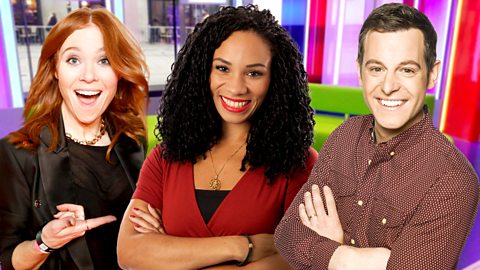
Although Hincks and Fincham have never worked for the same employer, they are old friends. The name, Expectation, is a play on No Expectations, the amateur band (Fincham on keyboards, Hincks on guitar), that they have played in for years.
Their first investor is BBC Worldwide, which has taken just under 25% of the company. Its head, Tim Davie, joined the BBC virtually the same week Fincham did in 2005. He can probably be counted a friend, too.
The key to their joint vision, Fincham insists, is that the company is led by its creative decisions.
He tells a story from his early days at Talkback about a meeting with a BBC executive, at which Fincham agreed to replace someone for a show’s second season. He confessed to the executive that this would be awkward, since the person being dropped was a friend.
The response was anything but sympathetic: “He told me: ‘Well, there’s a lesson you’ve learnt – don’t get too friendly with the animals.’ And I thought, ‘That’s such a giveaway phrase.’
That says: ‘We’re the zookeepers and they are the animals, the dumb animals.’ Absolute nonsense. The animals are the people who the viewers watch, and like.”
Now, it seems that Fincham was (what he would not call) an animal all along. Even for the decade he was a zookeeper at the BBC and ITV, he was always partly an “indie in exile”.
“I was nearly eight years as a director at ITV. I think that was long enough. Some would say too long. I don’t know. It’s certainly long enough. Coming to the end of that, I was able
to think, ‘What do I want to do next?’ I had a very clear sense that I did not want to move up the corporate ladder.”
Nor did he want, as the current jargon has it, to “go plural”, with board memberships here, consultancies there. He took inspiration from his father, a chartered accountant who, aged 61, threw in his lot with a client, Richard Forshaw, and helped turn the Dutton Forshaw car dealerships into an empire.
Arthur Fincham died a few years ago, aged 101, but he always said that those 10 years were the best of his life.
Not that Arthur, who educated Peter at one of the most expensive schools in the country, Tonbridge, ever regarded TV as a proper career in the sense that his two lawyer sons had real jobs.
Peter had showed a worrying inclination towards La La Land since Cambridge, where he was the Footlights’ musical director and pianist.
After a few years in the wilderness, he joined Talkback, then a radio commercials house, set up by Footlights leading light Griff Rhys Jones.
I don’t think that the right way to appeal to the ITV audience would be to talk down to them
One senior executive once claimed to me that Jones and Talkback’s co-founder, Mel Smith, initially treated Fincham “like an office boy”. Yet Fincham loved those two decades – the informality, the days of make-do, and his own creative contributions.
Even after the company was sold to FremantleMedia in 2000, in a deal that made him a millionaire some times over, he stayed for five more years.
“When I left Talkback, yes, of course, it had changed and it had grown. It wasn’t me and a couple of other people sitting around a table trying to keep warm, as 20 years earlier,” he says. “It was more that I felt that I needed to do something else.
“I had very young children at the time. I was exhausted. I thought I would take a break and then start another independent company. Then, I got offered the job of controlling BBC One – impossible to turn down.”
At Television Centre, he made it his task to make the channel “less miserable”. The mission, with hits such as How Do You Solve a Problem Like Maria? and Robin Hood, went well, and then very badly wrong.
Badly briefed at a press conference in 2007, he claimed a forthcoming documentary would show the Queen walking off in a huff from a portrait session with Annie Leibovitz. This was a great story and utterly untrue, as the press soon discovered.
The BBC press office phoned Fincham to warn him that a camera crew was intending to stake out his house – and that it was from BBC News. Being in the centre of a media storm was, understandably, “not much fun”. In due course, he resigned.
Looking back, what he is proudest of at the BBC was sticking to his guns and inventing The One Show against some powerful vested interests with their own shows at 7:00pm. “I think you wouldn’t easily imagine the BBC One schedule without it.”
When he left, he thought (you guessed it) that he might start an indie, only this time Michael Grade, Executive Chairman of ITV, made him another offer he could hardly refuse: to be his director of television.
No controllership is an unalloyed success, and there is some evidence from the ratings, at least, that Fincham’s creative renewal at ITV eventually ran out of puff. It was real enough, however, particularly in drama, where he commissioned two of the most notable dramas of recent times, Downton Abbey and Broadchurch.

He remembers reading Julian Fellowes’ script for the first Downton and thinking how, after the first episode of a drama, you are lucky to be invested in two characters – and here he was interested in 10, just from the script.
His decision to reinvent ITV News at Ten as a vehicle for a star anchorman and his expensively poached correspondents is, perhaps, a less happy memory. As we talk, we are into the third week of a grand experiment by Fincham’s successor, Kevin Lygo, to supplant the news with a chat show.
He says he knows where I am going with this, and believes Tom Bradby offers “something different”. He will not comment further, out of respect for his friend and rival Lygo – and out of self-respect, too. “I quite sincerely wish ITV the best of luck.”
There is one view of his ITV reign, I say, that holds that he was just too snobbish to really understand his audience.
He looks genuinely hurt when he says: “Well, I’m sorry to hear people say that because I don’t think it’s the case at all. I don’t think that the right way to appeal to the ITV audience would be to talk down to them, let’s put it that way. But, you know, if people say that, that’s fine and I’ve moved on from that life.”
These were happy years at ITV and the BBC, he insists. His four children by his wife, Clare, whom he met while she was at a commercials production company that shared a building with Talkback, were the right age to enjoy them.
He took them to The X Factor. His oldest daughter danced with Bruce Forsyth. Along the way, he found time to learn the classical piano to Grade 8, pedalling off to his teacher on Saturday mornings, and ended up playing a duet in public with Myleene Klass.
I ask whether being independently wealthy cushioned him from some of the pressures that other TV chiefs succumb to. I could not be more wrong – but, by asking the question, I discover, I think, the real reason that he left ITV.
“The answer is no, to be honest. If I had a show that I was nervous about, I would be just as nervous,” he insists.
The disappointments would still hit him in the stomach? “Of course, they would. Oh God! Anything that you have high hopes for that doesn’t quite work, I think it was always my inclination – and I hope that other people wouldn’t contradict this – was to blame myself.”
He does, I say, seem happier than when I last interviewed him, even though the pretext of that piece was the renaissance of ITV. “I feel that the burdens of office didn’t sit that comfortably on my shoulders. I always felt that I empathised too much with the people who made things.”
He talks about renewing a series that was not quite right, against his better judgement, and seeing it fail all over again, because viewers no longer give second seasons second chances.
He also talks about cancelling programmes. One, The Bill, was made by his own former company, TalkbackThames: “It was something I was responsible for. I was very, very conscious of the consequences of that, and it wasn’t what I went into television to do, to execute that power. I’m perfectly happy to have laid that power down and let somebody else take it.”
There are some events, it seems, of which a conscientious and decent television executive will retain perfect recall. My expectation is that Expectation will create rather more happy memories.
Peter’s progress
Peter Fincham, Co-CEO (with Tim Hincks) of Expectation
Married to Clare Lewthwaite, former TV executive and charity chief; two sons, two daughters
Lives Notting Hill, London
Born 26 July 1956
Parents Arthur and Joan Fincham
Education Tonbridge School; Churchill College, Cambridge (BA English)
1986 Producer, Talkback Productions
1986 Managing Director, Talkback Productions
2003 Chief Executive, TalkbackThames
2005 Controller, BBC One
2008 Director of television, ITV
2016 Left ITV
Hits The One Show, Broadchurch, Downton Abbey
Flops Red or Black?, Daybreak
Hobbies Piano – rock (with No Expectations) and classical
Watching The Bureau (Amazon); OJ: Made in America, Catastrophe, The Jump
On working with Smith and Jones at Talkback ‘I became more than the office boy but, initially, it was quite a small office’
On returning to independent production ‘It’s wanting to be on the field of play rather than in the stands watching the action’

